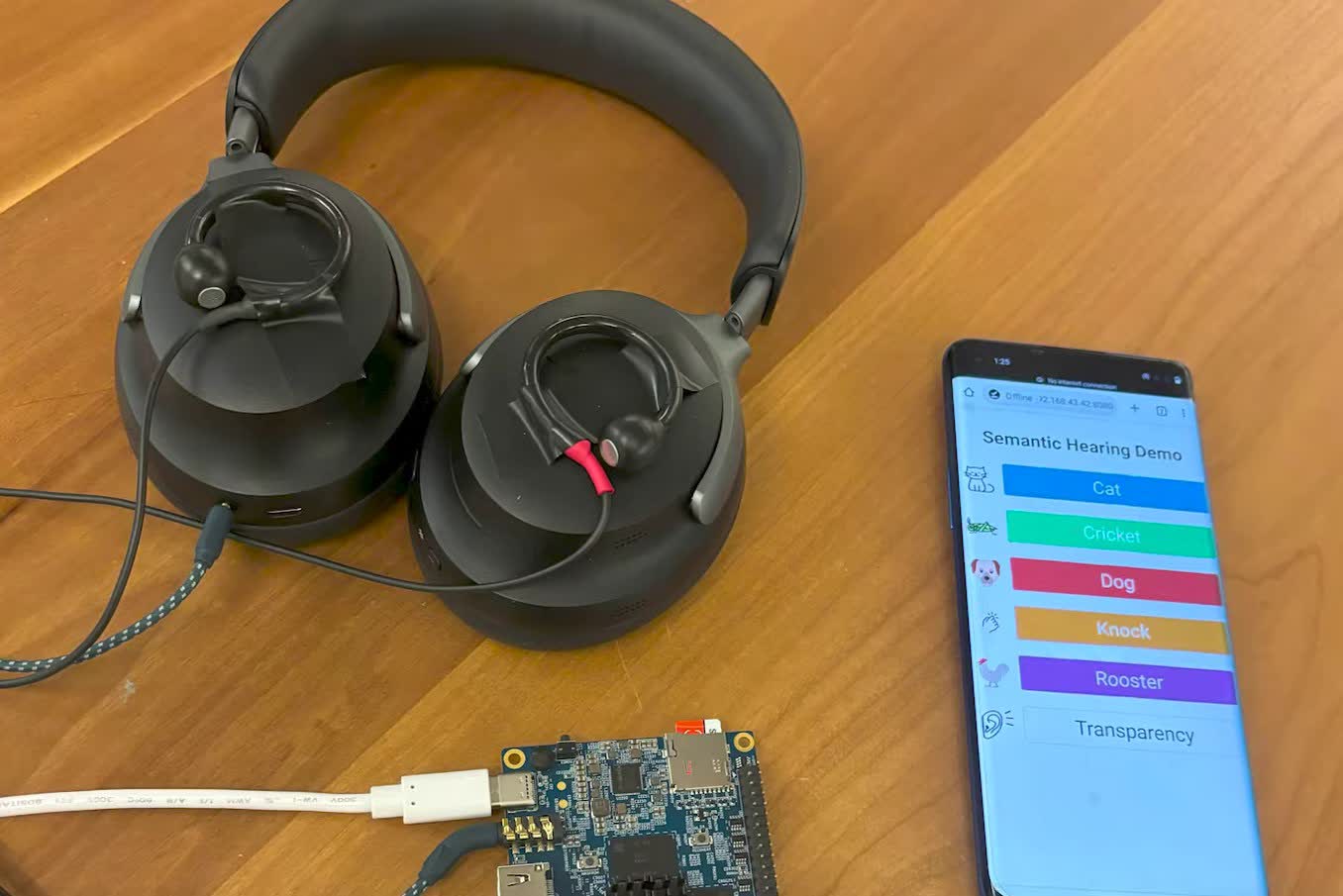Why it matters: If you are fed up with the noisy co-worker who won't stop hammering at their keyboard or that wailing baby on your flight, a headphone prototype from researchers at the University of Washington could be the upgrade you've been waiting for. Instead of simply dampening ambient sounds, this device uses AI to let you selectively filter out noises and focus on specific voices.
Most active noise-canceling headphones work by producing sound waves to counteract lower-frequency environmental rumbles like engine drones. But they end up canceling all sound in those frequencies, potentially removing audio you want to hear. The new prototype aims to give users more nuanced noise control.
The headphones have built-in microphones feeding audio to a neural network trained to recognize different types of sounds – barking dogs, ringing phones, bird calls, and more. Using a companion app, you can enable or disable categories, allowing just the noises you want to filter through the headphones.
But the really cool part is that the headphones can also zero in on a particular voice amid background chatter. Just tap a button and it will "enroll" the voice directly in front of you as the only sound to be amplified, dampening all other noise.
Shyam Gollakota, who developed the technology with a team of researchers, presented the idea on May 16 at a conference held by the Acoustical Society of America and the Canadian Acoustical Association. He demoed a working prototype at the event, as reported by New Scientist.

Under the hood, the microphones pipe audio into an AI processor that deciphers and removes unwanted sounds in real time. This is done with just an 8-millisecond delay, which the researchers say should be enough to avoid weird latency hiccups. For the on-device AI processing, the current headphone rig uses an OrangePi board connected via USB rather than going through a cloud server.
Of course, this prototype isn't something you can buy just yet. Commercialization would likely require everything shrinking down to a tiny chip that could integrate into future wireless headphone designs.
That said, AI is already making its way into mainstream audio gear through algorithm-powered noise cancellation for microphones. But this flips that concept on its head, using AI to augment what the wearer can hear, not just what the mic picks up. Any device with a decent AI accelerator and mic input could theoretically offer this kind of selective noise muting.
I'll admit that this innovative tech triggered a mildly creepy Black Mirror thought – about the "White Christmas" episode where a woman uses implants to literally "block" out and mute her partner from her senses. If noise cancellation of this sort can help enhance voices, could it also help mute certain voices? Let's not get too carried away with sci-fi scenarios just yet.
